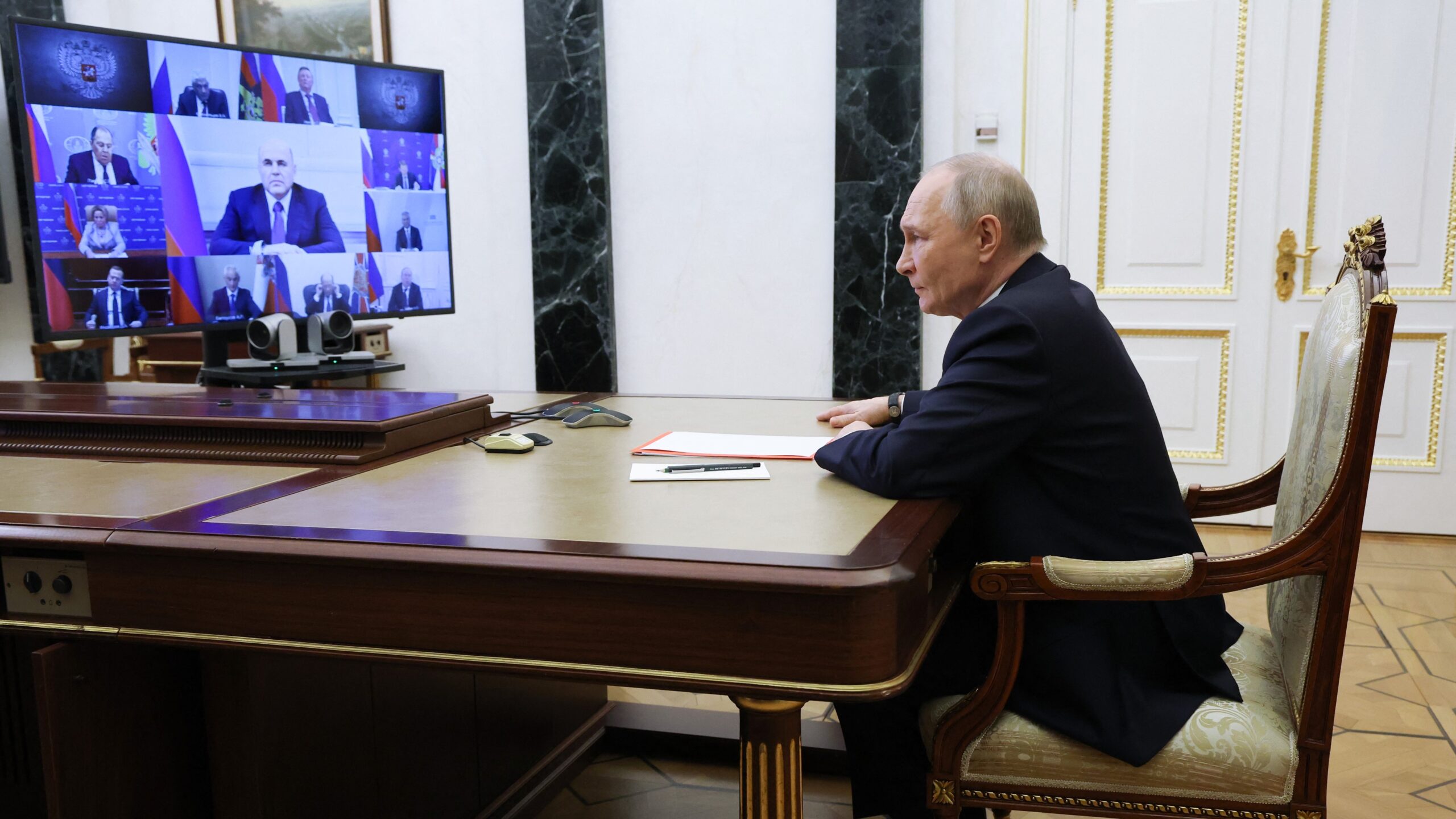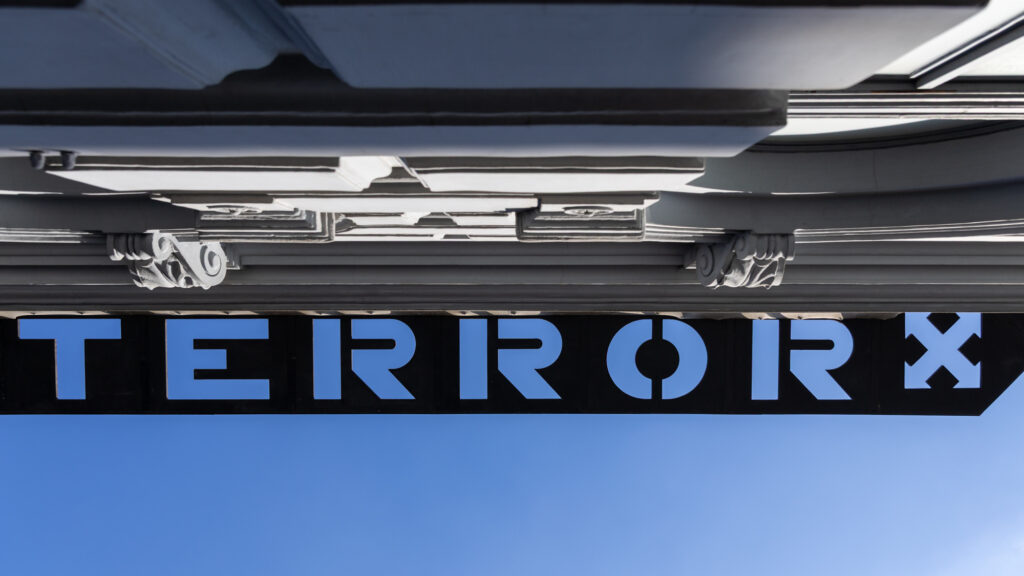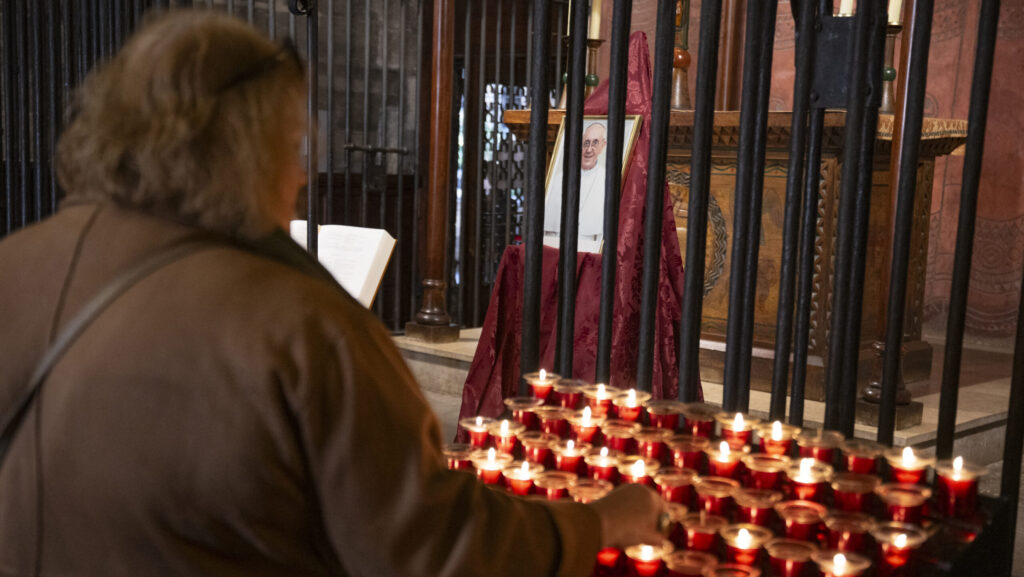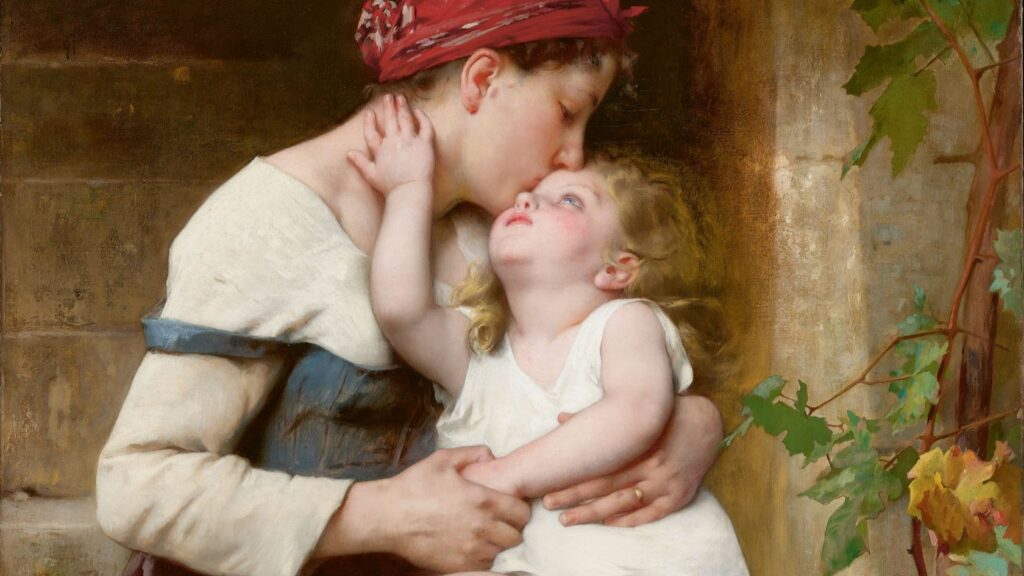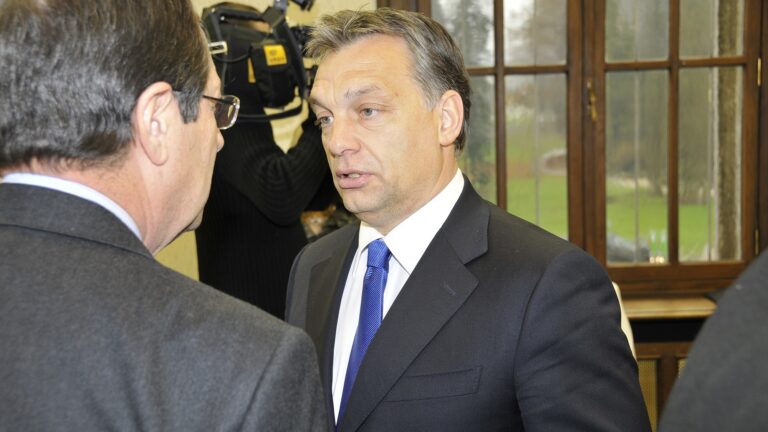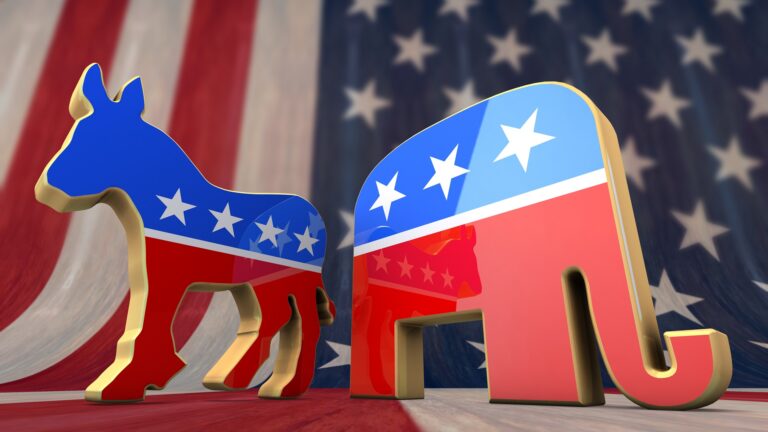Russia occupies a unique and paradoxical position in Huntington’s system of civilizations[1] and in a broader sense in global geopolitics as well: it is simultaneously Western and non-Western, European yet distinct from Europe. This duality is not merely a philosophical or cultural curiosity but is sometimes seemingly used as a strategic tool that some Russian regimes actively exploit in their international positioning.
The concept of Schrödinger’s cat, which originates in a paradox in quantum mechanics where a system can exist in two states simultaneously until observed, is a fitting metaphor for Russia’s geopolitical stance. Depending on perspective and political interests, Russia can be viewed as the easternmost outpost of Western civilization or the northernmost non-Western great power of the Global South. This ambiguity has led to deep divisions within Western political thought, where both the left and the right are internally split on how to perceive Russia. This article explores the historical origins and strategic implications of Russia’s Schrödingerean status.
Russia’s Cultural and Historical Duality
Russia’s Schrödingerean status is deeply rooted in its cultural and historical identity, which oscillates between being part of the West and developing as a civilization of its own. Unlike cultures clearly belonging to the Western civilization, or civilizations that are clearly non-Western, Russia bears attributes of both, creating an ambiguous identity that has fuelled debates for centuries.
On the one hand, Russia shares several core attributes of Western civilization: as an Orthodox Christian nation, it is part of the broader Christian world, not unlike the Catholic and Protestant nations of Europe.[2] It also produced world-renowned artistic and scientific achievements that are deeply rooted in European traditions: Dostoevsky, Tolstoy, Tchaikovsky, Malevich, and Nabokov are all integral to Western cultural discourse.[3] Since Peter the Great, it has also undergone successive waves of Westernization, adopting further Western cultural attributes as well as institutional approaches.[4]
‘Russia shares several core attributes of Western civilization: as an Orthodox Christian nation, it is part of the broader Christian world’
On the other hand, Russia also retains traits that are distinctive enough to make it appear as a civilization of its own. Its version of Christianity represents the Byzantine Greek–Orthodox denomination, which split from the Western Churches as early as 1054 AD and also represents a model of church-state relations, where the state dominates religion rather than being influenced by it, which is a key difference compared to Catholic and protestant societies.[5] While in the long run, the Byzantine model on its own may or may not have led to a significantly more autocratic and centralized system of government than the standards of the West, the evolutionary path characterized by hierarchical, authoritarian rule and the notion of an all-powerful leader was further boosted by the period of the Mongol–Tatar yoke, that lasted from the 13th to the 15th century.[6] Geopolitical isolation also reinforced this distinct evolutionary path, isolating Russia from the Renaissance, Reformation, and Enlightenment.[7] While it is seldom discussed in such a context, we can arguably also add the seven decades of Soviet communism to the factors making Russia distinct from the West, as during the Soviet Communist period, Russia was in practice more isolated from the West than any time before ever since Peter the Great. Arguably as a result of this evolutionary path, in modern times, Russia often resisted Western democratic ideals, portraying them as foreign impositions that threaten its sovereignty and identity.[8]
Russia’s 19th-century foreign policy in itself showed the Schrödingerian duality: Russia played a central role in the Napoleonic wars, and the Concert of Europe, influencing Western political history in profound ways.[9] On the other hand, the Schrödingerian duality was still there: as Kissinger notes, participation in the Concert of Europe, and all affairs linked to this role, were managed by Russia’s Foreign Office, often dominated by Baltic German aristocrats, a department of the Chancery. Russia’s relations with its Asian neighbours, even including the Ottoman Empire in the Balkans on the other hand, were managed by the Asiatic Department, an independent institution outside the Chancery. The Asiatic Department didn’t consider Russia as part of the Concert of Europe and viewed European powers not as partners, but as obstacles to Russia’s expansion. As Kissinger points out, a main reason for the Balkans becoming such a neuralgic point of relations between Russia and the West was that regarding the Balkans specifically, European powers came into collision with the agenda of Russia’s Asiatic Department instead of its Foreign Office.[10] Therefore, it is not an overstatement to say that Russia’s Schrödingerian duality was mirrored even in the very institutions of 19th century imperial Russia.
‘While the Westernizers sought to fully integrate Russia into Europe in both a political and a cultural sense, Slavophiles believed Russia was basically a civilization of its own’
After centuries of its organic Schrödingerean evolution, the first wave of Westernization in Russia occurred throughout the 18th century, especially under two outstanding, albeit absolutistic rulers, Peter the Great[11] and Catherine the Great.[12] This sparked the first internal ideological conflicts within Russia, the debate between Slavophiles and Westernizers in the 19th century, in which while the Westernizers sought to fully integrate Russia into Europe in both a political and a cultural sense, Slavophiles believed Russia was basically a civilization of its own, with a unique spiritual and political destiny, separate from the West.[13]
Weaponization of the Schrödingerean duality?
How the organic debates around this duality can be combined with using it as a geopolitical tool could be seen during the Soviet era, and can again be observed during the Putin era, the two showing surprisingly close analogies. As Huntington points out, as the Soviet Union represented a certain version of Marxism, a fashionable ideology in the West at the day, this twist enabled Russia to turn the tables regarding the discourse. Instead of the debate in Russia between Westernizers and Slavophiles, whether the West is the future of Russia, a debate among Western Marxists emerged regarding whether Russia epitomized the future of the West.[14] After the relatively brief intermezzo of the Yeltsin era, mirroring within Russia the 19th-century debate between Westernizers and Slavophiles, Putin again turned the tables in a very similar way as the Soviets did: while during the Soviet era, Marxism was the fashionable ideological current of the day, Putin embraced the discourse of Western conservatives and nationalists,[15] posing Russia as the model nation for these emerging Western ideologies of our era.[16] By doing so, Putin triggered a debate among today’s Western conservatives, arguably very much akin to that among Western Marxists during the Cold War, again raising the question of whether Russia epitomizes the future of the West. While on the one hand, during the Soviet era, this debate took place among the ranks of the Western Left, now it is taking place within the Western Right. While during the Cold War, it resulted in a split between pro-Soviets, and Soviet-sceptics within the Western Left, we can see signs of a similar split occurring between the pro-Russia and Russia-sceptic wings of the Western Right.
While taking an ideological position that would enable it to position itself as epitomizing the future of the West, both the Soviet leadership and Putin pushed the Schrödingerian paradox to the maximum by simultaneously posing as the anti-colonial and anti-imperialist champion of the Third World or the Global South. During the Cold War, the Soviet Union certainly positioned itself as the champion of anticolonialism and gained the support of several leaders of the Global South, from Cuba through Congo-Brazzaville and Ethiopia to Vietnam. This at the time was not too paradoxical, as the Western left, after all, was anti-colonialist itself. We can see a similar duality today as well, this time, however, it is more paradoxical. On the one hand, Putin’s Russia poses as the beacon of Western Conservatism; at the same time it also poses as the champion of the Global South, especially as a prominent member of the BRICS, but in many other ways as well.[17] Here the issue becomes more paradoxical than the one during the Cold War, as Western conservatives could be categorized as civilizational patriots. Where the issue becomes the most apparent is the interlinked question of Jihadism and the Middle East. While most Western conservative political parties are staunch opponents of Jihadism, and especially the European right tends to see it as the foremost existential threat, and also tends to support Israel, Russia maintains cordial ties with Iran and its regional proxies, such as the Hezbollah, the Hamas, and the recently fallen Assad regime of Syria. In fact, since the start of the Ukraine invasion in 2022, Iran has become a much closer ally of Russia than any other BRICS member state, as it provides Russia with lethal military help that no other BRICS member does, or at least admits doing so.
‘While during the Soviet era, Marxism was the fashionable ideological current of the day, Putin embraced the discourse of Western conservatives and nationalists’
This duality creates an internal rift within both the Western Right and Left, as seeing Russia as the easternmost Western conservative outpost or the northernmost vanguard of the Global South leads to diagonally opposite conclusions. Those of the Western Right who see it as the easternmost Western conservative outpost tend to support it, while those who see it the northernmost vanguard of the Global South tend to oppose it. On the Western Left, the situation is the opposite: while Putin positioning Russia as the beacon of the Western Right alienated most of the Western left, some of it still keeps supporting Russia, as they see it as the northernmost anti-imperialist vanguard of the Global South.[18]
Russia’s Schröndingerian position as simultaneously Western and non-Western seems to be Schrödingerian in its political nature as well. While on the one hand, it is an organic, and very real result of Russia’s centuries-long cultural and societal evolution, it again and again seems to be utilized and even weaponized by the country’s leadership, as we can see in case of both the Soviet era and the Putin era. With centuries of cultural and societal evolution behind it on the other hand, the Schrödingerian duality seems to be not a bug, but a feature of Russia, and therefore, it is unlikely to go anywhere any time soon. For the West, this suggests that waiting for Russia either to become fully integrated into the West or to clarify its position as non-Western seems to be futile.
[1] Samuel P Huntington, The Clash of Civilizations and the Remaking of World Order, Simon & Schuster, 1996.
[2] Ordlando Figes, Natasha’s Dance: A Cultural History of Russia, Metropolitan Books, 2002.
[3] Geoffrey Hosking, Russia and the Russians: A History, Harvard University Press, 2012.
[4] James Cracraft, The Revolution of Peter the Great, Harvard University Press, 2003.
[5] Nicholas Riasanovsky & Mark Steinberg, A History of Russia, Oxford University Press, 2010.
[6] Charles J Halperin, Russia and the Golden Horde: The Mongol Impact on Medieval Russian
History, Indiana University Press, 1985.
[7] Richard Pipes, Russia Under the Old Regime, Penguin, 1995.
[8] Timothy Snyder, The Road to Unfreedom: Russia, Europe, America, Tim Duggan Books, 2018.
[9] Dominic Lieven, Empire: The Russian Empire and Its Rivals, Yale University Press, 2000.
[10] Henry Kissinger, Diplomacy, Simon & Schuster, 1994.
[11] Cracraft, 2003.
[12] Isabel de Madariaga, Catherine the Great: A Short History, Yale University Press, 2002.
[13] Isaiah Berlin, Russian Thinkers, Penguin, 1978.
[14] Huntington, 1996.
[15] Snyder, 2018.
[16] Anton Shekhovtsov, Russia and the Western Far Right: Tango Noir, Routledge, 2017.
[17] Dmitri V Trenin, Post-Imperium: A Eurasian Story, Brookings Institution Press, 2011.
[18] Noam Chomsky & Vijay Prashad, The Withdrawal: Iraq, Libya, Afghanistan, and the
Fragility of U.S. Power, New Press, 2022.
Related articles:

